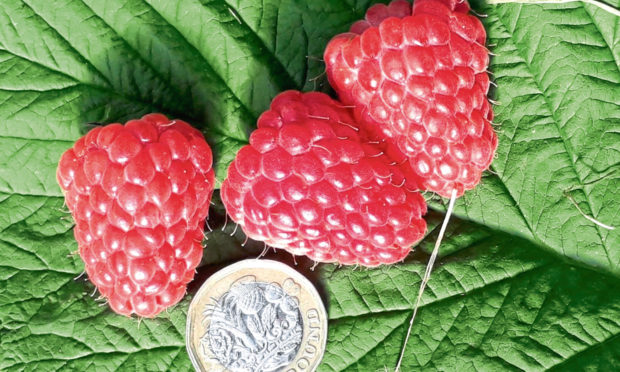A new root rot-resistant raspberry variety launched by James Hutton Limited (JHL) this week will give soft fruit producers the option to return to soil-based production rather than having to use costly substrate in pots.
Glen Mor, which was released to mark the beginning of the industry’s Fruit for the Future events, could be a game-changer for growers who have watched root rot devastate production and contaminate their soils.
Fruit breeder Nikki Jennings said: “It’s the first raspberry cultivar that combines a molecular marker for root rot resistance with the fresh market quality the industry is looking for.
“It’s an early season floricane and we’ve grown it in infested soil over six seasons where it showed no symptoms at all, so it’s really quite robust indeed. In the last two years we’ve also trialled it in substrate, in coir, and it gives excellent results there also.”
However a successful variety needs characteristics in addition to disease resistance to make it a winner, and JHL say Glen Mor also has commercial qualities such as high yield and flavour, and due to its size and presentation, is economical to pick.
Nikki Jennings described Glen Mor’s flavour as “fruity and sweet, but with a balance of acid and notes of coconut” and said retailers had responded well to tastings over the past three years.
Root rot resistance has been the holy grail for breeders at the James Hutton Institute (JHI) in Invergowrie and this variety was fast-tracked from the breeding programme which is supported by the UK Raspberry Breeding Consortium and the Scottish Government.
It is now commercially available .
Two primocane raspberry varieties are also live. Lewis is an early-season variety with large shiny fruit and Skye is a highly productive early summer cropper. Both have low chilling requirements.
